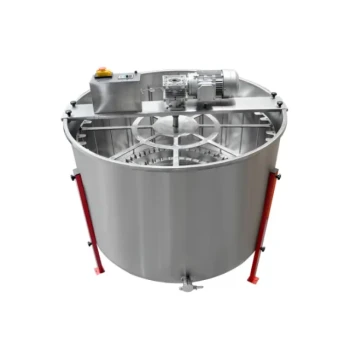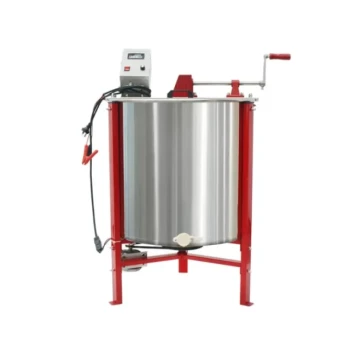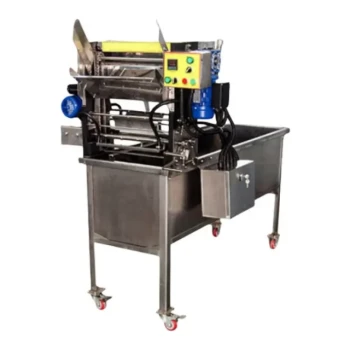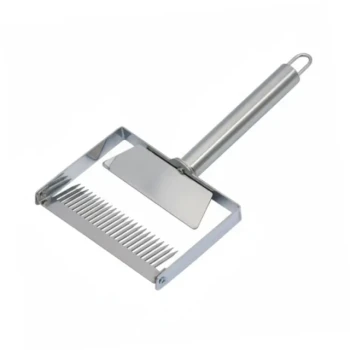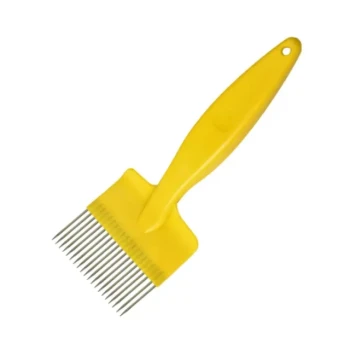In virtually all cases, you should not extract any honey from a hive in its first year. The colony's primary focus is on establishment and building the necessary resources to survive its first winter, a task that requires every drop of honey it can produce. Taking a harvest prematurely is one of the most common and costly mistakes a new beekeeper can make.
The central goal for a first-year hive is not honey production for the beekeeper, but the colony's long-term survival. Your role is to support their establishment, ensuring they have the strength and stores to emerge as a powerful, productive hive in year two.
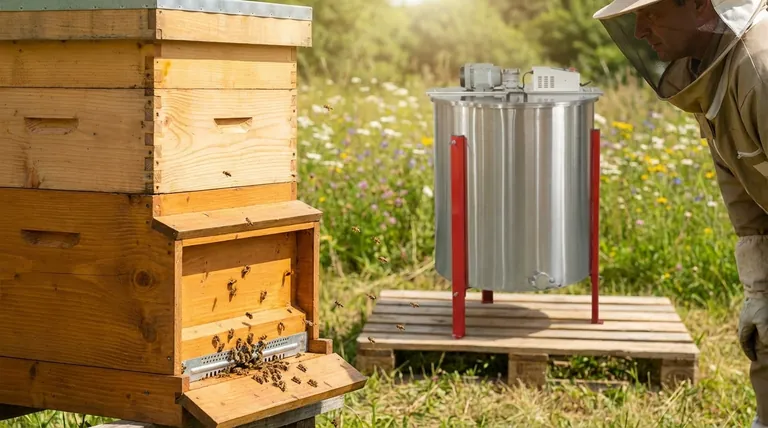
Why a New Hive Needs All Its Honey
A new bee colony, whether from a package or a nucleus hive, is starting from behind. It faces an immense amount of work that an established hive has already completed.
The Energy Cost of Building a Home
The first task is comb construction. Bees must consume vast amounts of nectar (or sugar syrup) to produce wax flakes from glands on their abdomens, which they then meticulously shape into the perfect hexagonal cells of honeycomb.
This wax foundation is the entire infrastructure of their society. It's where the queen lays her eggs, where pollen is stored, and where nectar is ripened into honey. This process is incredibly energy-intensive.
Establishing a Strong Population
To thrive, the colony needs a booming population. The queen needs empty, drawn-out comb to lay thousands of eggs per day.
A larger workforce of forager bees means more incoming nectar and pollen, which in turn fuels more brood-rearing and comb-building. It's a critical growth cycle that cannot be short-changed.
Creating Winter Survival Stores
The honey a colony stores is not a surplus; it is their essential winter pantry. Bees do not hibernate. They form a tight cluster around the queen, vibrating their wing muscles to generate heat.
This activity burns through an enormous amount of calories, and honey is their sole fuel. Without an adequate supply, the cluster cannot generate enough heat, and the colony will freeze to death.
Common Pitfalls for First-Year Beekeepers
Patience is the most valuable tool in beekeeping. Understanding the consequences of acting too soon can prevent the loss of your first colony.
The Risk of a Miscalculation
The single greatest risk of taking first-year honey is colony death. A new beekeeper often underestimates how much honey a hive needs to survive a local winter.
Even if you supplement their food with sugar syrup, you are placing the colony under stress and providing a nutritionally inferior food source compared to their own honey.
Creating a Weak Spring Colony
A colony that just barely survives winter on minimal stores will be slow to build up in the spring. They will spend the first part of the nectar flow replenishing their own food rather than creating a surplus.
By leaving all the honey in year one, you enable the hive to emerge from winter strong and ready to take immediate advantage of the spring nectar flow, dramatically increasing your chances of a large harvest in year two.
The "Strong Hive" Exception
In rare cases, a colony started very early in the season in a region with a long, powerful nectar flow might build an exceptionally large population and fill two deep brood boxes with an abundance of honey.
Even in this scenario, a new beekeeper should be extremely cautious. It is always safer to leave the honey and ensure their survival than to risk the entire colony for a small, early harvest.
A Beekeeper's Action Plan for Year One
Your management decisions should be guided by the colony's needs, not the desire for a honey harvest.
- If your primary focus is colony survival: Leave all the honey in the hive. Do not add a honey super unless both brood boxes are completely full of bees, brood, and resources.
- If your primary focus is a strong start for year two: Ensure the hive is healthy and has more honey than you think it needs. A strong winter cluster is the foundation for a productive second year.
- If you believe you have an exceptionally strong hive: Consult with an experienced local beekeeper or mentor to get a second opinion before even considering taking a single frame.
By prioritizing your colony's needs in the first year, you are making the best possible investment for a sustainable and rewarding beekeeping future.
Summary Table:
| Consideration | Why It Matters for a First-Year Hive |
|---|---|
| No Honey Extraction | The colony needs all its honey for comb building, population growth, and winter survival fuel. |
| Primary Goal: Establishment | Focus on helping the hive build a strong population and adequate food stores, not on harvesting. |
| Risk of Premature Harvest | Taking honey can lead to colony death or a weak spring hive, delaying future honey production. |
| Patience is Key | A strong, well-established hive in year one sets the stage for a significant harvest in year two and beyond. |
Equip Your Apiary for Success with HONESTBEE
Setting up your beekeeping operation for long-term success starts with the right foundation. By prioritizing colony health in the first year, you ensure a productive future. HONESTBEE supplies commercial apiaries and beekeeping equipment distributors with the high-quality, durable supplies needed to support your hives through every stage of growth.
From essential hive components to protective gear, our wholesale-focused operations provide the reliable equipment that helps beekeepers like you foster strong, thriving colonies. Let us help you build a sustainable and profitable beekeeping business.
Contact HONESTBEE today to discuss your wholesale supply needs and invest in your apiary's future.
Visual Guide
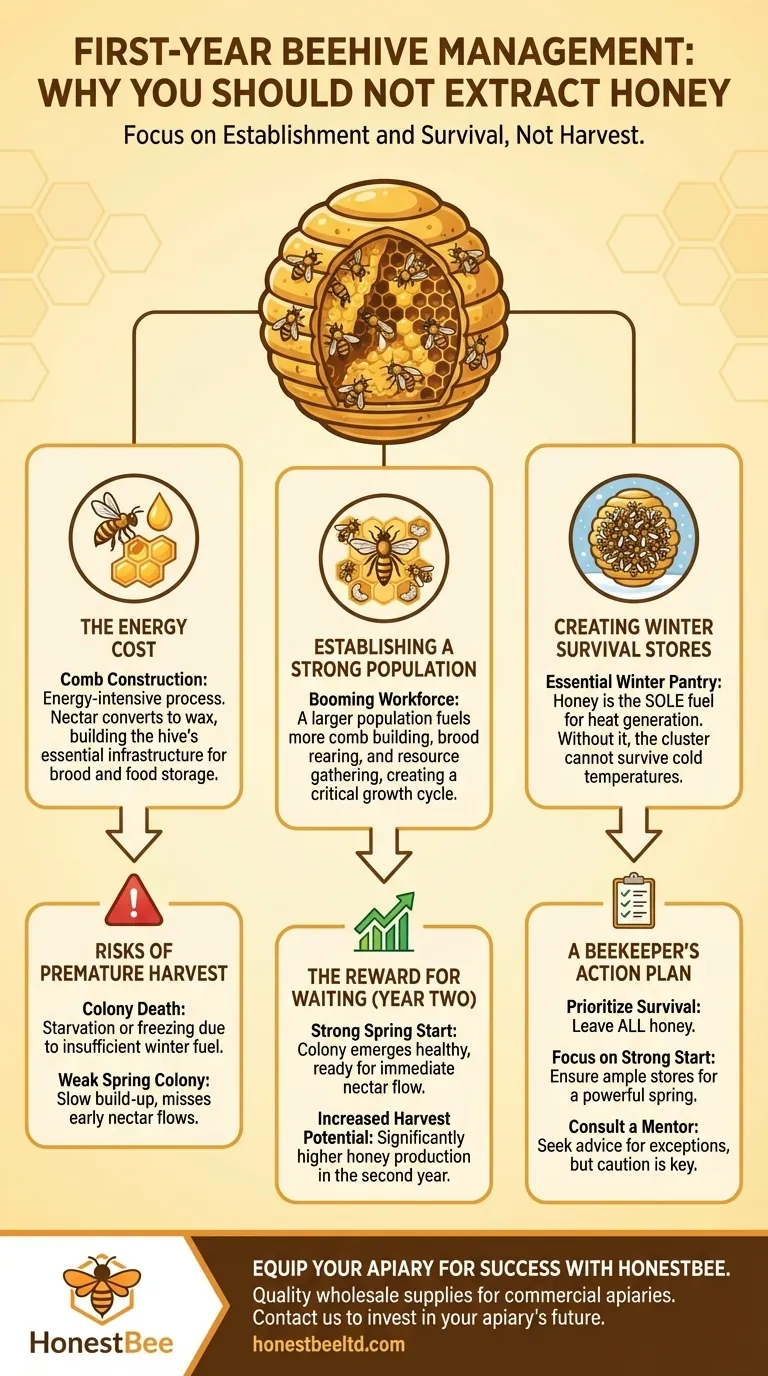
Related Products
- 8-Frame Electric Self-Reversing Honey Extractor Spinner for Commercial Honey Extraction Equipment
- HONESTBEE 72 Frame Industrial Electric Honey Extractor for Beekeeping
- HONESTBEE 3-Frame Manual Acrylic Honey Extractor
- 6 Frame Manual Stainless Steel Honey Extractor Beekeeping Equipment
- 40 Frame Commercial Electric Honey Extractor for Beekeeping
People Also Ask
- Why are industrial centrifugal honey extractors essential for preserving honeycomb? Boost Your Apiary's Yield Today
- Why is preserving honeycomb integrity important, and how do automated extractors help? Boost Hive Health & Honey Yields
- What are the key steps to follow when using a honey extractor? Expert Tips for a Perfect Harvest
- What are the core functions of an industrial 12-frame honey extractor? Boost Efficiency and Hive Resource Conservation
- Why are honey extractors utilized in the large-scale cultivation of Apis cerana? Boost Yield and Protect Bee Energy




